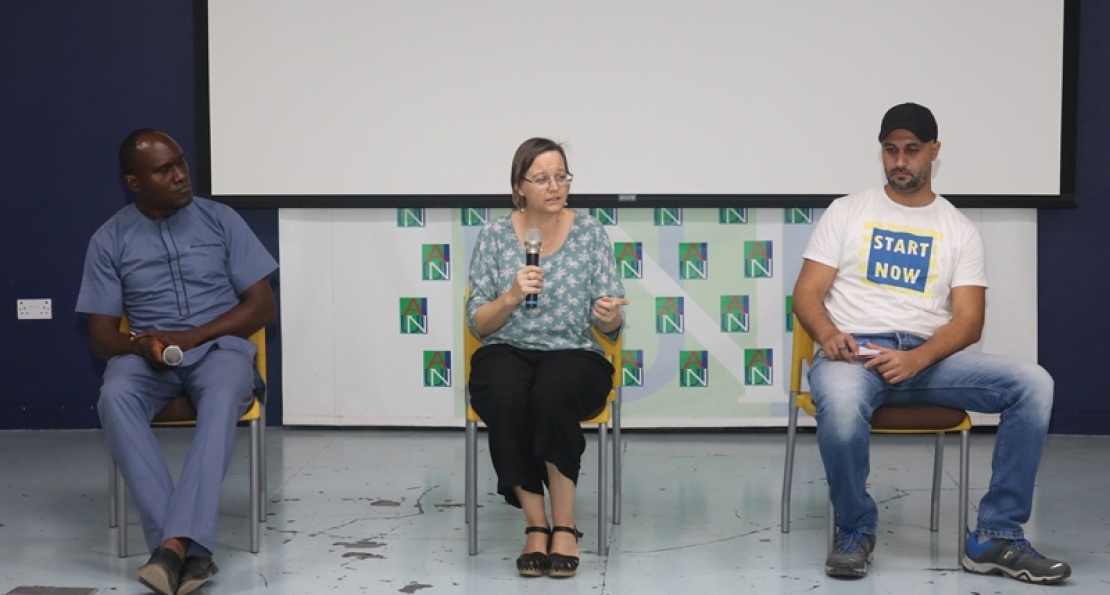On March 2, 2020, volunteers kicked off the #GetAUNGreen campaign, a program powered by selected energy stakeholders and champions.
#GetAUNGreen is primarily an energy-saving initiative that is aimed at transforming AUN’s energy culture, create an awareness in the university community, and get it to become an integral part of the hearts and minds of people in AUN.
A spokesman for the Energy stakeholders and faculty member in the School of Business & Entrepreneurship, Fardeen Dodo, said AUN needed to save energy to reduce the university's expenditure on both diesel and public mains supply.
“They are the second drainers of our resources. AUN spends a lot of money in providing energy on campus in the forms of electricity, air-conditioning, and alighting.”
He said the campaign is aimed at transforming the energy-saving culture at AUN.
Sustainability Field Research Officer, Olurotimi Ogundijo, spoke on the need to be sustainable at AUN.
According to his graphic presentation, the University’s expenditure on energy needs is huge.
“Why are we trying to be champions of energy? It is because it has the potential of fulfilling the first R of sustainability – Reduce.”
He said avoiding wastage is a way to improve efficiency. And that wastage translates to energy and of course cost for the university.
“When we do this, we are helping ourselves as a university and we are also inculcating culture in our students that when they leave this place, they know what it means to be responsible with whatever resources that they have.”
Ms. Jennifer Che of the Natural & Environmental Science program spoke on why we need to be sustainable as humans. She stressed that mankind needs nature to provide its resources.
“It gives us our food and materials to build our resources. We are all linked to it.”
She called on everyone to take the energy campaign seriously. She maintained that every living organism has a function it plays in nature which when destroyed can destabilize the ecosystem.
Project Assistant with the Facilities Management, Mostafa Kenawy, gave tips on how to conserve electrical energy. He said there was a need for everyone to adopt the culture of turning off lights and appliances when not in use. He recommended that the bulbs for our lighting should be changed from fluorescent to LED. Fluorescent bulbs consume about 38W while LED takes only about nine. While the LED lights are costly, they tend to last longer.
Reported by Omorogbe Omorogiuwa


